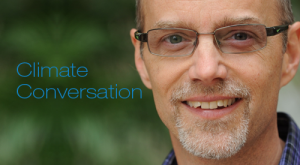Bringing climate change home
 Recently, I was listening to a climate advocate recount her experience at a community workshop she had attended in Arizona on the topic of drought. The organizers were happy to have been invited into the community to discuss this topic, and happier still to be able to include a noted climatologist as the opening speaker.
Recently, I was listening to a climate advocate recount her experience at a community workshop she had attended in Arizona on the topic of drought. The organizers were happy to have been invited into the community to discuss this topic, and happier still to be able to include a noted climatologist as the opening speaker.
What transpired during the presentation is emblematic of the broader conversation about climate change, at least in the West.
The good news: the speaker did not use the words “climate” and “change” one right after the other. The bad news: the presentation was so chock full of compelling data, charts, graphs, and images that the audience was left overwhelmed and confused. It took most of the remaining day-long gathering to get the workshop participants focused back on their concerns.
Having participated in many community workshops on complex environmental and land use issues, I’ve learned one cardinal rule: no matter the topic, you have to start where the community is at. Establishing a personal connection with the audience requires speaking to what matters most to them. Telling a story that relates to their concerns is even better.
As the evidence and urgency grows about climate change, there’s a tendency among climate advocates to want to convey all the information available, when it may be wiser to follow the old adage that “less is more.” In the West, folks are already experiencing drought, heat waves, and wildfire. Possibly focusing on just one of these climate events, and keeping it local and personal, may be enough to start a conversation.

John Shepard

Latest posts by John Shepard (see all)
- A climate conversation for the Colorado River basin - March 19, 2014
- Climate change and the current drought in the Southwest - March 17, 2014
- Climate change: a business risk we can’t ignore - February 6, 2014

2 Responses to Bringing climate change home
You must be logged in to post a comment Login